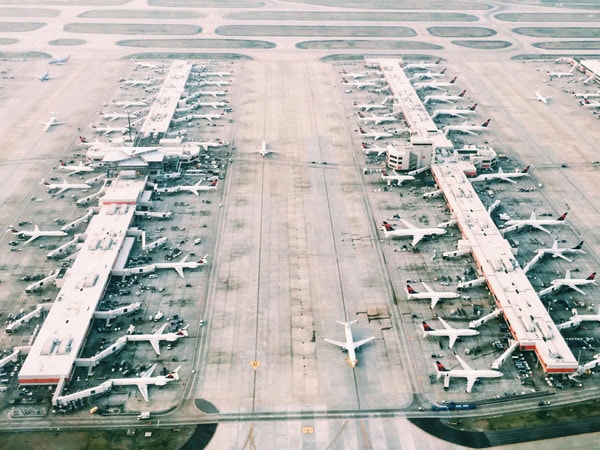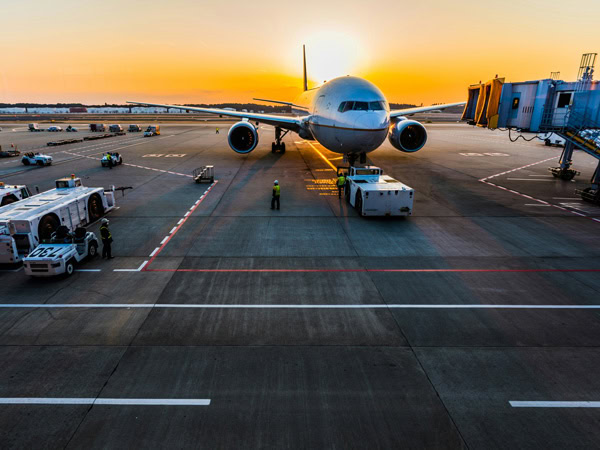26 August 2024
![]() 5 mins Read
5 mins Read

On Monday 26 August 2024, the Federal Government released their highly anticipated Aviation White Paper outlining the path forward for Australia’s aviation sector. The White Paper includes 56 policies setting the direction for the industry, including the establishment of an independent Aviation Industry Ombuds Scheme and an Aviation Customer Rights Charter.
These initiatives will set out clear guidelines for how airlines must handle issues such as flight cancellations, delays and compensation. Here’s what we know so far.
Replacing the Airline Customer Advocate, the new Aviation Industry Ombuds Scheme will cover both domestic and international airlines operating in Australia, as well as airports. It aims to ensure greater accountability from airlines, especially concerning flight delays, cancellations, refunds and compensation.
The Aviation Industry Ombudsperson will have the power to oversee and resolve customer complaints related to airlines and airports, potentially forcing airlines to compensate customers for delayed or cancelled flights. They will ensure that refunds are processed promptly where applicable.
In addition to handling complaints, the ombudsperson will publish reports on airline and airport conduct and make policy recommendations to the Australian Government to further protect consumer rights.

The Aviation Industry Ombuds Scheme will ensure greater airline accountability. (Image: Skyler Smith)
The Aviation Industry Ombudsperson is being introduced in response to growing frustration from Australian travellers regarding poor customer service, lengthy delays and difficulties obtaining refunds or compensation from airlines. It comes after increased scrutiny of airline practices and a push for stronger consumer protections.
The Aviation Customer Rights Charter, developed alongside the ombudsman, will offer a clear and accessible outline of passengers’ entitlements. This includes guidelines on when passengers are entitled to cash refunds, compensation for delays and cancellations, as well as outlining airlines’ obligations in other areas, like lost luggage and customer service standards they must meet. The goal is to create consistent and enforceable standards.

The Aviation Customer Rights Charter will offer a clear and accessible outline of passengers’ entitlements. (Image: Rocker Sta)
The immediate impact on domestic flight prices is uncertain, though airlines may pass the cost of compliance onto passengers. However, increased accountability could lead to a more reliable aviation industry, ultimately benefitting passengers by reducing the indirect costs of travel disruptions.
Yes, the introduction of the Aviation Industry Ombudsperson is expected to improve airline performance by encouraging compliance with stricter service standards and increasing transparency in how airlines handle delays and cancellations.

Domestic flight prices may increase. (Image: Tom Barrett)
Passengers will be able to lodge complaints through a streamlined process overseen by the ombudsperson. They will mediate disputes and enforce compensation when applicable. Further details on the claims process will be made available once the system is fully operational.
The Aviation Industry Ombuds Scheme will be set up to resolve disputes between airlines and passengers by 2026.

There has been growing frustration from Australian travellers regarding the aviation industry. (Image: Emiel Molenaa)
Airlines will face stricter customer service standards and could be required to compensate passengers for cancellations, delays or other service failures. They will also be required to “show cause” for why flights are delayed or cancelled. Additionally, the Government will review its travel purchasing policies to ensure fairness and transparency in airline booking practices.
“We will also increase the transparency of airline performance, with more data on performance and competition to be published by the Bureau of Infrastructure and Transport Research Economics (BITRE),” federal transport minister Catherine King said.
“We welcome the release of the Aviation White Paper and the opportunities it presents to improve regulatory and policy settings, ensuring all Australians continue to benefit from a competitive and sustainable aviation industry in the years ahead,” a Virgin Australia spokesperson told Australian Traveller.
“We are closely reviewing the policy position on various topics and we look forward to working collaboratively with the Government and other industry participants during this process.”
In the European Union, aviation ombudsmen and strong consumer protection laws, such as the EU’s Regulation 261/2004, are already in place. This regulation guarantees compensation for long delays and cancellations unless caused by extraordinary circumstances.
In the United States, there is no standalone aviation ombudsman. Instead, airline disputes are primarily handled through federal agencies like the Department of Transportation (DOT), which regulates airline consumer protection, with rules on compensation for overbooking, mishandled baggage and tarmac delays. However, compensation for flight delays or cancellations is not as robust as in Europe, with airlines mostly determining their own policies.

Airlines will be required to “show cause” for why flights are delayed or cancelled. (Image: Erik Odiin)
LEAVE YOUR COMMENT